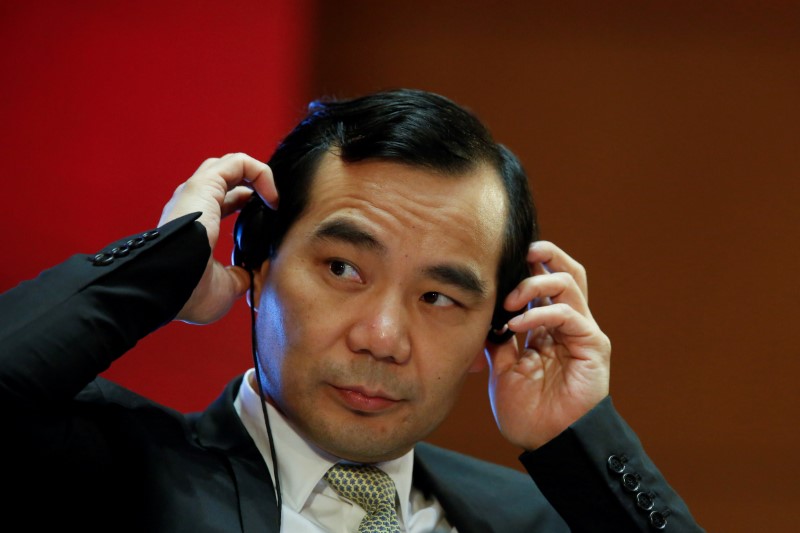Investing.com’s stocks of the week
SHANGHAI/BEIJING (Reuters) - The former chairman of Anbang Insurance Group Co Ltd [ANBANG.UL], Wu Xiaohui, contested all charges against him in a high-profile trial that began in Shanghai on Wednesday, adding he was unaware whether his activities had violated the law.
Wu's trial for alleged economic crimes, including fundraising fraud and embezzlement, comes a month after the government seized control of the once-high flying insurer and announced that Wu was being prosecuted, as Beijing cracks down on big-spending conglomerates and financial risk.
Anbang, the privately-held Chinese company that owns the Waldorf Astoria hotel in New York city and other marquee properties around the world, had been one of the most aggressive investors behind a wave of overseas acquisitions by China's firms that have attracted the attention of global regulators and investors.
The prosecutors found that in 2011 Wu concealed his actual control over Anbang and intentionally faked financial statements to cheat China's insurance regulator for approvals to sell insurance products to the public for investment, according to a statement from the Shanghai No. 1 Intermediate People's Court.
In July 2011, Wu broke the rules by telling his company to sell investment-purpose insurance products that exceeded the approved amount.
By Jan. 5, 2017, Anbang had oversold 723.9 billion yuan ($115.32 billion) of insurance products and transferred some of the funds to his other companies for investment, debt repayment and personal spending. Wu swindled 65.2 billion yuan, the court statement said.
The downfall of Anbang, which got its start as an auto insurer, came after the government trained its sights on acquisitive non-state firms amid a sweeping program to lower debt and financial risk in the economy.
Anbang declined to comment on the start of the trial.
The court said parliamentarians, journalists and others, including family members of Wu, attended the hearing.
Wu, known for his hard-driving, hands-on approach and single-minded ambition, was detained in June, sources have said.
After a spate of high-profile deals worth more than $30 billion, Anbang began to run into roadblocks even before Wu's detention, though, failing to close on a handful of investments and facing criticism over its opaque shareholding structure.
On Feb. 23, the government took control of Anbang Group for a period of a year. During the takeover, the company would be managed by officials from the China Insurance Regulatory Commission (CIRC), the central bank and other key financial regulators and government bodies.
It is unclear how Wu's trial will affect Anbang or its ability to conduct business, but regulators have said they will undertake an equity restructuring of the insurer and protect the rights and interests of its consumers and stakeholders.
Private conglomerates in China have recently attracted regulatory attention for their aggressive acquisitions of overseas assets. Some insurers were punished for using client money derived from high-yield investment products sold to consumers for risky investments. This has particularly jarred with authorities concerned about an economy over-reliant on credit.
($1 = 6.2775 Chinese yuan)
